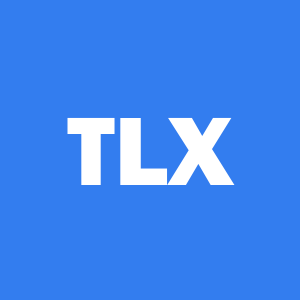NOBLE Registry Update: TLX599-CDx PSMA SPECT Imaging of Prostate Cancer Published in EJNMMI Reports
Rhea-AI Summary
Telix Pharmaceuticals and the Oncidium foundation have published results from the NOBLE Registry study of TLX599-CDx in EJNMMI Reports. The study evaluates a PSMA-SPECT imaging agent for prostate cancer using technetium-99m. Initial results from 40 patients across six countries showed that the imaging led to management changes in 42.5% of cases, with no adverse events reported.
The technology aims to improve access to prostate cancer imaging, as SPECT machines are four times more abundant globally than PET scanners. The study demonstrates that technetium-based PSMA imaging could provide a more accessible alternative to PET imaging, particularly beneficial for patients in remote locations or areas with healthcare resources.
Positive
- Management changes reported in 42.5% of patients using TLX599-CDx SPECT imaging
- No adverse events reported in the clinical study
- Technology leverages widely available SPECT machines (4x more common than PET scanners)
- Uses technetium-99m with established supply chain and bench-top production capability
Negative
- Study to small sample size of 40 patients
- Product still in investigational phase, requiring further clinical studies
News Market Reaction – TLX
On the day this news was published, TLX gained 3.20%, reflecting a moderate positive market reaction.
Data tracked by StockTitan Argus on the day of publication.
MELBOURNE, Australia and BRUSSELS, Dec. 31, 2024 (GLOBE NEWSWIRE) -- Telix Pharmaceuticals Limited (ASX: TLX; Nasdaq: TLX, Telix, the Company) and the Brussels-based Oncidium foundation today announce that results for the NOBLE Registry of TLX599-CDx (99mTc-iPSMA) have been published in the European Journal of Nuclear Medicine and Molecular Imaging (EJNMMI) Reports.
The NOBLE (Nobody Left Behind) Registry (NOBLE) is a global real-world evidence (RWE) study that aims to improve equity of access to state-of-the-art prostate cancer imaging. NOBLE is a collaboration combining the oncology and prostate cancer expertise of the Oncidium foundation as registry sponsor, Telix’s intellectual property, and partnered clinical and operational support. An international network of sites support the registry locally through Principal Investigators (PIs), who are responsible for initiating and conducting research. Investigators collect patient data that will inform the development of TLX599-CDx, an investigational prostate cancer imaging agent that targets PSMA 1 using 99m-technetium (99mTc)-based SPECT2 imaging.
SPECT cameras are being clinically evaluated in this application because they are more widely available than the PET/CT3 scanners used for gallium- or fluorine-based PSMA imaging, where access can be limited by socio-economic or geographic factors, as well as healthcare funding models. For every PET scanner available globally, there are four SPECT machines4, making them a more accessible option when used with 99mTc – a radionuclide with a well-established supply chain, which can be produced in a bench-top generator.
In the publication, the investigators report initial results based on a study of 40 patients in six countries5, who received TLX599-CDx followed by planar and SPECT imaging. Investigators reported a change in management for 17 patients (
Pete Tually, lead author, Director, TeleMed Remote Nuclear Medicine, and Principal Investigator for the Australian arm of NOBLE said, “The NOBLE Registry is an important initiative for increasing access to medicine globally, particularly for men in regional and remote locations. The interim results reported in our manuscript are promising, and we believe they provide a compelling basis for the further clinical study of technetium-99m-based PSMA imaging of prostate cancer.”
Rebecca Lo bue, CEO, Oncidium foundation, added, “PSMA-PET6 imaging is today widely used in many countries worldwide, helping to extend life and improve treatment outcomes for men with prostate cancer through earlier diagnosis and better disease management. However, millions of men do not have access to this technology. These results from NOBLE represent an exciting milestone in bringing to market a powerful, cost-effective, and widely available alternative imaging tool that uses PSMA-SPECT technology.”
Dr. David N. Cade, Group Chief Medical Officer, Telix, continued, “Telix is proud to support the NOBLE Registry, which aims to improve access for patients who face geographic or economic barriers to state-of-the-art prostate cancer imaging. This publication by Pete Tually and his co-authors7 signals a positive future for technetium-99m-based PSMA imaging, and we are excited to be part of this innovative program. As established leaders in PSMA imaging, Telix is committed to exploring multiple avenues to help men with prostate cancer get the diagnoses and treatments they need. We would like to thank all NOBLE investigators and the patients who have contributed towards this study.”
The EJNMMI Reports publication is available online at:
https://link.springer.com/article/10.1186/s41824-024-00226-4
Telix and the Oncidium foundation are planning follow-on clinical activity for NOBLE. This may include collaboration with Rhine Pharma on expanded access or compassionate use programs, exploring the use of technetium-99m and rhenium-188 as a theranostic pair for prostate cancer. This initiative reflects Telix’s global commitment to access to medicine.
About the Oncidium foundation
The Oncidium foundation is a nonprofit organisation dedicated to advancing global access to radioligand therapy for cancer care. The foundation's priorities include raising awareness about radiotheranostics among patients and physicians, supporting and financing the development of new radiopharmaceuticals for therapy, supporting clinical best practice, and improving access to patients, globally. For more information visit http://www.oncidiumfoundation.org.
About Telix Pharmaceuticals Limited
Telix is a biopharmaceutical company focused on the development and commercialization of therapeutic and diagnostic radiopharmaceuticals and associated medical technologies. Telix is headquartered in Melbourne, Australia, with international operations in the United States, Europe (Belgium and Switzerland), and Japan. Telix is developing a portfolio of clinical and commercial stage products that aims to address significant unmet medical needs in oncology and rare diseases. Telix is listed on the Australian Securities Exchange (ASX: TLX) and the Nasdaq Global Select Market (Nasdaq: TLX).
Telix’s lead imaging product, gallium-68 (68Ga) gozetotide injection (also known as 68Ga PSMA-11 and marketed under the brand name Illuccix®), has been approved by the U.S. Food and Drug Administration (FDA)8, by the Australian Therapeutic Goods Administration (TGA) 9, and by Health Canada10. No other Telix product has received a marketing authorization in any jurisdiction.
Visit www.telixpharma.com for further information about Telix, including details of the latest share price, announcements made to the ASX, investor and analyst presentations, news releases, event details and other publications that may be of interest. You can also follow Telix on X and LinkedIn.
Telix Investor Relations
Ms. Kyahn Williamson
Telix Pharmaceuticals Limited
SVP Investor Relations and Corporate Communications
Email: kyahn.williamson@telixpharma.com
Legal Notices
You should read this announcement together with our risk factors, as disclosed in our most recently filed reports with the Australian Securities Exchange (ASX), U.S. Securities and Exchange Commission (SEC), including our registration statement on Form 20-F filed with the SEC, or on our website.
The information contained in this announcement is not intended to be an offer for subscription, invitation or recommendation with respect to securities of Telix Pharmaceuticals Limited (Telix) in any jurisdiction, including the United States. The information and opinions contained in this announcement are subject to change without notification. To the maximum extent permitted by law, Telix disclaims any obligation or undertaking to update or revise any information or opinions contained in this announcement, including any forward-looking statements (as referred to below), whether as a result of new information, future developments, a change in expectations or assumptions, or otherwise. No representation or warranty, express or implied, is made in relation to the accuracy or completeness of the information contained or opinions expressed in the course of this announcement.
This announcement may contain forward-looking statements, including within the meaning of the U.S. Private Securities Litigation Reform Act of 1995, that relate to anticipated future events, financial performance, plans, strategies or business developments. Forward-looking statements can generally be identified by the use of words such as “may”, “expect”, “intend”, “plan”, “estimate”, “anticipate”, “believe”, “outlook”, “forecast” and “guidance”, or the negative of these words or other similar terms or expressions. Forward-looking statements involve known and unknown risks, uncertainties and other factors that may cause our actual results, levels of activity, performance or achievements to differ materially from any future results, levels of activity, performance or achievements expressed or implied by these forward-looking statements. Forward-looking statements are based on Telix’s good-faith assumptions as to the financial, market, regulatory and other risks and considerations that exist and affect Telix’s business and operations in the future and there can be no assurance that any of the assumptions will prove to be correct. In the context of Telix’s business, forward-looking statements may include, but are not limited to, statements about: the initiation, timing, progress and results of Telix’s preclinical and clinical trials, and Telix’s research and development programs; Telix’s ability to advance product candidates into, enrol and successfully complete, clinical studies, including multi-national clinical trials; the timing or likelihood of regulatory filings and approvals for Telix’s product candidates, manufacturing activities and product marketing activities; Telix’s sales, marketing and distribution and manufacturing capabilities and strategies; the commercialisation of Telix’s product candidates, if or when they have been approved; Telix’s ability to obtain an adequate supply of raw materials at reasonable costs for its products and product candidates; estimates of Telix’s expenses, future revenues and capital requirements; Telix’s financial performance; developments relating to Telix’s competitors and industry; and the pricing and reimbursement of Telix’s product candidates, if and after they have been approved. Telix’s actual results, performance or achievements may be materially different from those which may be expressed or implied by such statements, and the differences may be adverse. Accordingly, you should not place undue reliance on these forward-looking statements.
©2024 Telix Pharmaceuticals Limited. The Telix Pharmaceuticals® and Illuccix® names and logos are trademarks of Telix Pharmaceuticals Limited and its affiliates – all rights reserved.
___________________________________________
1 Prostate-specific membrane antigen.
2 Single photon emission computed tomography.
3 Positron emission tomography/computed tomography.
4 MEDraysintell.
5 Australia, Azerbaijan, Egypt, Indonesia, Mexico, South Africa.
6 Imaging of prostate-specific membrane antigen with positron emission tomography.
7 Virginia Garcia Quinto (Hospital Galenia Department of Nuclear Medicine, Cancun, Mexico), Yehia Omar (Misr Radiology Center, Cairo, Egypt), Fuad Novruzov (Department of Nuclear Medicine, Azerbaijan National Centre of Oncology, Baku, Azerbaijan), Ryan Yudistiro (Department of Nuclear Medicine, Siloam Hospital, Jakarta, Indonesia), Mike Sathekge (University of Pretoria Nuclear Medicine Department, Gauteng, South Africa), Geoffrey Currie (School of Dentistry and Medical Sciences, Charles Sturt University, Bathurst, Australia), Paul Galette, Neel Patel, Tracey Brown and David Cade (Telix), Gabriel Bolland and Rebecca Lo bue (Oncidium foundation).
8 Telix ASX disclosure 20 December 2021.
9 Telix ASX disclosure 2 November 2021.
10 Telix ASX disclosure 14 October 2022.








